Independent retailers are refusing to panic over the supermarket price wars on milk, which is partly responsible for a record low level of inflation.
The Consumer Prices Index stood at 0.3% in January, the lowest since the measure was established in 1997, according to the Office for National Statistics. Food deflation was cited as a major contributing factor, in particular supermarket price wars over two-pint cartons of milk.
Barrie Seymour of Londis Littletown, West Yorkshire, said store location was a factor in deciding milk prices, but he stood firm when the competition cut theirs. “My message to independents is not to panic - I wouldn’t race to the bottom. A retailer less than a mile from me started selling two-litres for £1, and it didn’t affect us; people like the milk we sell. We sell at £1.59 for two-litres.
“People say milk is a footfall driver, but I’d say 70% of people who buy from us aren’t buying anything else.”
Sid Ali, who owns four Nisa stores in Aberdeenshire, agreed that it was not worth competing with the supermarkets. “We’re trying not to get involved, but sales are down 20%. However, we’d have to double our sales if we sold at £1 for two-litres. We currently sell at £1.49. We tried it for 12 weeks for £1 and sales increased only 9%, while profits declined by about 49%,” he said.
However, he insisted that the current situation was unsustainable. “The logical conclusion is that milk prices will have to go up at some stage to guarantee we have a supply chain in the future - a lot of dairy farmers are stopping producing milk,” he said.
“The convenience sector is not biting because we can’t afford to follow the supermarkets.”
He said he might advise Nisa to design a poster explaining why milk prices are lower in the supermarkets.
Opinion
“I buy two-litre cartons from Blakemore at a higher cost than I could buy four-pint cartons from Lidl. Selling milk cheaply is suicide as it’s a whopping seller. I sell at the most premium price as I can: £1.85 for two-litres.”
Peter Sichel of Spar Holmer Green, Buckinghamshire
“It depends on location. We sell two x two-litres for £2 at our Bromsgrove store, but charge more at our village store.”
Chaz Chahal, three Costcutter stores in the West Midlands
Inflation at a record low
Falling food and motor oil prices drove inflation to a record low in January, according to the Office for National Statistics (ONS).
It said food prices fell by 2.8% in the year to January 2015, driven mainly by falling milk prices resulting from supermarket price wars over two-pint cartons.
The price of food and non-alcoholic drinks overall fell by 0.7% between December 2014 and January 2015. Alcohol and tobacco prices increased by 1.4% between December and January, compared with a rise of 2% between the same two months the previous year.

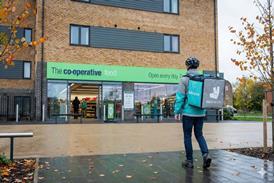


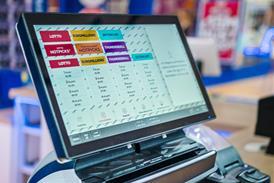



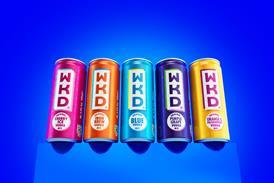

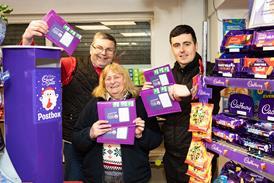
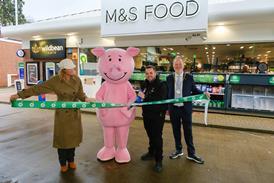
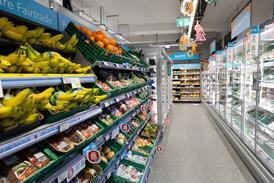







1 Readers' comment